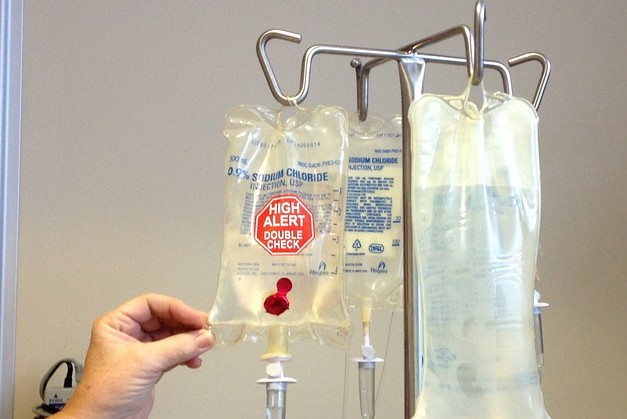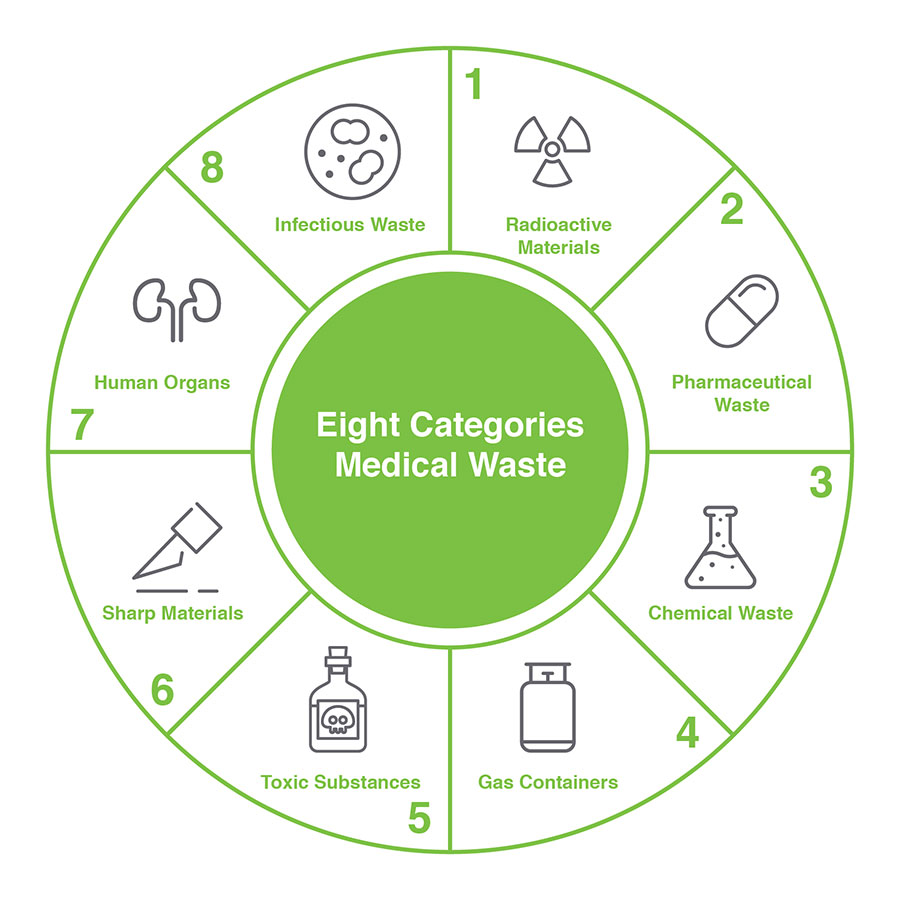Defending Health: Introducing the Significance of Specialist Medical Waste Removal
Wiki Article
Remain Ahead of Rules: Professional Guidance on Medical Waste Disposal
In a world where the medical care market is continuously evolving, it is important for medical facilities to stay in advance of laws when it comes to the appropriate disposal of medical waste. With strict standards and frequent regulatory adjustments, it can be challenging to browse the intricacies of this process. With professional recommendations, centers can guarantee compliance and reduce threats associated with incorrect waste disposal. From comprehending the different categories of clinical waste to carrying out the ideal collection and segregation approaches, this conversation will certainly supply important understandings and actionable tips to assist facilities remain in advance of guidelines in the ever-changing landscape of medical waste disposal.Recognizing Medical Waste Categories
Understanding clinical waste classifications is essential for correct disposal and monitoring in medical care facilities. Medical waste refers to any kind of waste created by health care activities that may present a danger to public health or the atmosphere. It is crucial to classify clinical waste properly to ensure its risk-free handling, disposal, therapy, and transportation.There are numerous categories of medical waste that health care facilities require to be familiar with. One of the most usual classifications include transmittable waste, pathological waste, sharps waste, pharmaceutical waste, and chemical waste. Each group has certain guidelines and regulations for its proper monitoring and disposal.
Transmittable waste consists of materials contaminated with blood or other bodily liquids, such as handwear covers, dress, and lab cultures. Pathological waste describes human tissues, body organs, or body components that call for unique handling and disposal. Sharps waste consists of made use of needles, syringes, and other sharp items that can create injury and transmit infections. Drug waste comprises ended, extra, or contaminated medications that require mindful handling and disposal. Chemical waste consists of solvents, disinfectants, and other chemical materials used in healthcare facilities.
Remaining Up-To-Date With Regulatory Adjustments
Remaining current with regulative adjustments is crucial for healthcare facilities to guarantee compliance and appropriate management of clinical garbage disposal. medical waste removal near me. With laws frequently advancing, it is essential for healthcare facilities to stay current to stay clear of fines, penalties, and potential damage to the setting and public wellnessTo stay ahead of regulative modifications, healthcare centers must develop a system for tracking and tracking updates. This can be done by signing up for governing newsletters, attending workshops and conferences, and actively getting involved in sector organizations. Furthermore, centers must mark a staff participant or group in charge of staying informed and sharing details to appropriate stakeholders.
Routine interaction with regulative firms is additionally important. Healthcare facilities should establish partnerships with regional, state, and government agencies to guarantee they recognize any kind of modifications in policies that may influence their waste monitoring techniques. This can be done via routine conferences, involvement in public remark periods, and aggressive involvement with governing firms.
Moreover, medical care facilities must think about partnering with waste administration business that specialize in clinical waste disposal (medical waste disposal services with WasteX). These business are often well-versed in the most up to date policies and can give advice and support to ensure compliance
Applying Appropriate Collection and Segregation Methods
To properly manage clinical garbage disposal, medical care centers have to develop correct collection and Click Here partition approaches according to regulatory guidelines. Executing these techniques makes sure the risk-free handling and disposal of possibly unsafe materials, secures the setting, and reduces the threat of injuries and infections to healthcare workers and the basic public.
Proper collection and partition methods entail the use of designated containers and labeling systems. you can try these out Healthcare facilities need to give plainly labeled containers for different sorts of clinical waste, such as sharps, transmittable waste, pharmaceutical waste, and non-hazardous waste. These containers must be color-coded and plainly significant to avoid complication and promote simple identification.
Furthermore, healthcare centers ought to educate their staff on the correct treatments for gathering and segregating medical waste. This consists of enlightening them on the various kinds of waste, the suitable containers to utilize, and the importance of complying with laws and standards. Normal training sessions and refresher course training courses need to be performed to make certain that employee remain current on finest methods.
Moreover, medical care centers need to develop a system for regular collection and disposal of clinical waste. This may entail partnering with licensed waste administration companies that focus on medical waste disposal. These companies will make certain that the gathered waste is carried and gotten rid of in conformity with regulative needs.
Selecting the Right Disposal Approaches

Incineration is among the most usual and effective methods for taking care of specific kinds of clinical waste, such as pathological waste and sharps. It includes the controlled combustion of waste at high temperature levels, lowering it to ash. Nevertheless, incineration can release hazardous toxins right into the air and add to air contamination.

Chemical therapy entails the usage of chemicals to reduce the effects of the waste and sanitize. Microwave therapy makes use of microwave energy to warmth and decontaminate the waste.
Ensuring Conformity With Documentation and Training
After very carefully taking into consideration the appropriate disposal techniques for clinical waste, health care centers should ensure compliance with regulations and reduce ecological impact by executing effective paperwork and training procedures. This step is essential in preserving a lasting and secure setting for both medical care employees and the basic public.
Health care workers who manage clinical waste needs to receive suitable training on waste partition, taking care of, and you can check here disposal procedures. By offering thorough training, healthcare facilities can equip their personnel to make educated choices and decrease the risk of incorrect waste disposal.
Final Thought
To conclude, remaining ahead of policies in clinical garbage disposal is essential for medical care centers. medical waste removal. Comprehending the various categories of medical waste, staying updated with regulatory changes, implementing correct collection and partition approaches, selecting the proper disposal approaches, and guaranteeing compliance through paperwork and training are all important steps. By following these guidelines, healthcare organizations can efficiently take care of and get rid of of medical waste in a responsible and secure fashionFrom recognizing the different categories of clinical waste to carrying out the ideal collection and segregation methods, this discussion will offer important insights and actionable suggestions to assist centers stay ahead of policies in the ever-changing landscape of medical waste disposal. - medical waste disposal services with WasteX
The most typical groups include infectious waste, pathological waste, sharps waste, pharmaceutical waste, and chemical waste. Health care facilities must provide plainly classified containers for various types of clinical waste, such as sharps, contagious waste, pharmaceutical waste, and non-hazardous waste. Healthcare centers need to develop a detailed system to tape and track all aspects of clinical waste disposal, consisting of types of waste produced, quantities, and disposal approaches utilized. Health care workers who take care of clinical waste ought to obtain proper training on waste segregation, handling, and disposal treatments.
Report this wiki page